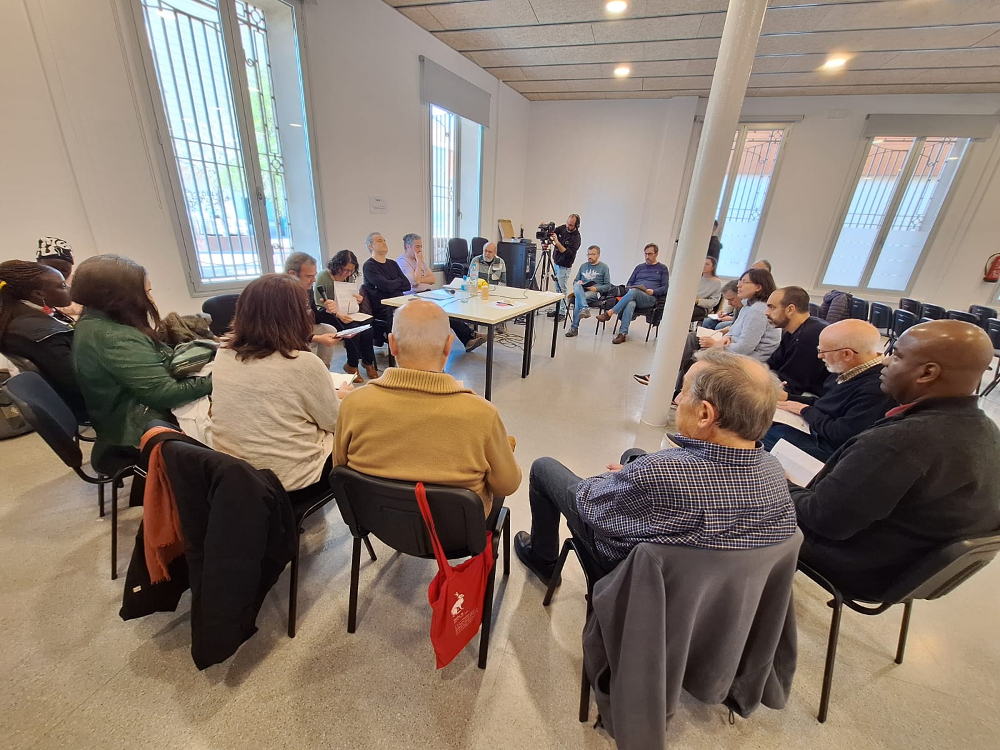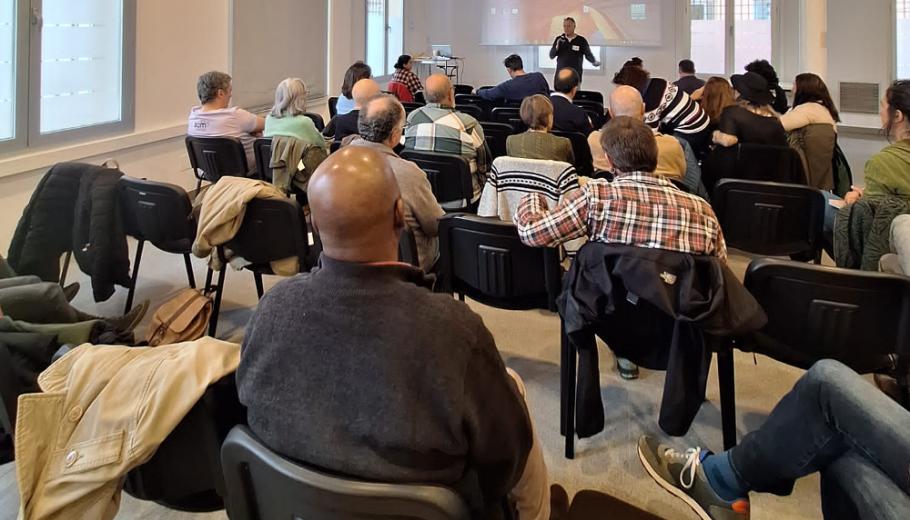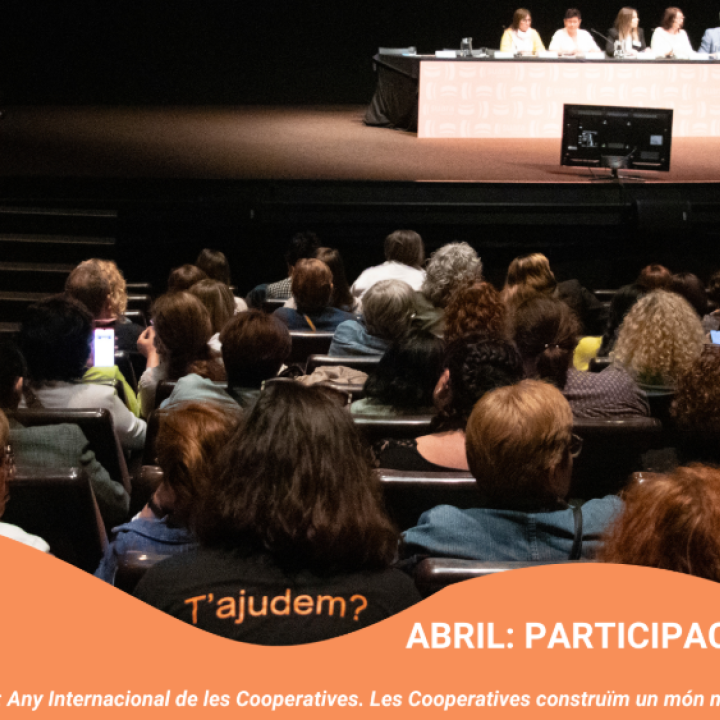"Should cooperatives grow?" "How?". These questions focused an intense day of work organized by the Roca Galès Foundation, which brought together people from Catalan cooperatives and in which Tomàs Llompart, co-director general of Suara, contributed the organization's experience.
Suara was born from the merger of three cooperatives that worked in the field of social action and that decided to unite in 2008 to face the ravages of the economic crisis. In 2009, the first data collected in Suara Cooperativa's memory, the organization had close to 1,373 employees and 413 partners; while nearly 20 years later, Suara Cooperativa has more than 5,000 workers and 1,600 members, who support around 39,000 people from nearly 300 services.
Throughout this process, a series of lessons have been learned from Suara Cooperativa, which Llompart shared in his speech during the event organized by the Roca Galès Foundation.
First of all, and surely one of the most important, is to understand that a cooperative is a collective project and not the sum of individual projects. "To cooperate is to SHARE and it's not easy: it means giving up. Throughout our lives, they teach us another word that only changes two letters COMPETITION", highlighted Tomàs Llompart.
During his presentation, the co-director general revealed the most relevant steps that must be taken when you want to grow a cooperative project. Before starting to walk, it is necessary to determine those values that will be inherent in the organization, its business culture, the services that are to be offered and the territorial area where they will be deployed. Next, in order to be able to carry out realistic prospecting, it must be assessed whether you have the capacity and the financial and human resources to carry out the project.
What decisions did Suara Cooperativa make before starting the process?
In the case of Suara, for example, the three cooperatives that joined, worked in the field of services to people and each of them offered some similar and others different. For this reason, we opted for a project aimed at accompanying people from all life stages with diverse realities from all over Catalonia, in services to people in vulnerable situations, educational and health. Therefore, Suara manages a very wide range of services, mainly from the public administration, such as: nursery schools, centers for children and supervised adolescents, job placement programs for people at risk of social exclusion, flats for people in a situation of homelessness, mediation in prisons, home care services for the elderly or in a situation of dependency, residences or day centers, among others.
Tasks that are carried out on the basis of five key values: inter-cooperation with the world of business, academia and public administration; from the proximity to the people he accompanies who are the ones who take the lead and decide on his vital projects; social responsibility towards both the community and the natural environment; transparency when reporting on management and its results; as well as a clear commitment to innovation and the search for technological solutions that improve the lives and well-being of the people being cared for, their relatives or the immediate environment, the caregivers, as well as the professionals of Suara Cooperativa or other organizations, entities or companies.
In terms of business culture, the cooperative model means that all people are partners in a horizontal and democratic way in the decisions that affect the organization in all its areas, such as the business model, its management or direction of this. In the case of Suara Cooperativa, for example, two annual assemblies are organized where members have the same voice and vote in decision-making.
The first steps on the way
Once the foundations have been laid, it is time to take the first steps. At this moment, another key point, explained Tomàs Llompart, is to value what we want to preserve if or not. "It's important to analyze what you don't want to lose, because you certainly lose things. Also, you gain from others, but as human beings it is more difficult for us to lose than to win", clarified Tomàs Llompart. In this context, he emphasized that, since resources are limited, they must be allocated to what the cooperative is not willing to give up.
Various obstacles appear along the journey. According to Tomàs Llompart, both individual and collective fears arise around the growth process that must be analyzed to determine how they must be faced to overcome them. These, however, are not the only ones. Also, you have to overcome others such as fears that exist and you don't want them to surface or those that you don't know are there, but they are.

During the day organized by the Roca Galès Foundation, which was held on March 2 from 10:00 a.m. to 6:00 p.m. in Mataró, there was not only a debate about how the cooperative model should grow, but also what it can contribute to the society. For this reason, in the first two activities the people attending, around seventy, distributed their interests according to simultaneous tables on different topics: consumer groups of cooperative supermarkets; local groups of large cooperatives; tools to guarantee transparency and democracy in large cooperatives; the relevance of inter-cooperation in cooperative poles and, finally, how micro-cooperatives grow. Later, in a joint session, they delved deeper into each of these thematic areas.
In the afternoon, Tomàs Llompart intervened in a carousel of experiences where, beyond transferring the learning acquired during Suara's growth process; he also argued the essential contribution of cooperativism to society as a whole. "We believe that the social economy must be able to demonstrate that we can be transformative for the economy in general", defended Tomàs Llompart.



